Current Projects
Country: Madagascar
Showing 1 - 25 of 36
36 results found
Accelerating the introduction of electric mobility through development of legal, regulatory and institutional framework, public outreach, capacity building, demonstration pilots of electric vehicles, development of business models for private sector engagement and finance schemes for upscaling and replication.
The project seeks to strengthen institutional, infrastructural, human & regulatory biosafety capacities of the Governments of Democratic Republic of Congo (DRC), Madagascar and Namibia in the implementation of NBFs in support of the CPB and (its) Nagoya-Kuala Lumpur Supplementary Protocol on Liability & Redress.
To fast-track readiness and early actions to implement the post-2020 Global Biodiversity Framework by providing financial and technical support to GEF-eligible Parties to the Convention on Biological Diversity (CBD) in their work to review and align their national targets, NBSAPs, policy frameworks, monitoring frameworks and finance with the Global Biodiversity Framework.
To promote the use of National Capital Accounting (NCA) as a tool for Land Use Planning to achieve Protected Area (PA) management effectiveness, deployment of good Sustainable Land Management (SLM) practices and operationalization of Ecovillages in Central Highlands of Madagascar
To enhance national-level institutional and technical capacities for the 2021-2022 UNCCD reporting process in the context of the UNCCD Strategic Framework 2018-2030 and SDG15.3
To improve the conservation of Alliance for Zero Extinction (AZE) sites.
Conservation of biodiversity in Madagascar through strengthened management of the New Protected Areas (Category V), with active engagement by communities, and enforcement to reduce the rate of IWT and poaching
Facilitate the implementation of the Stockholm Convention in participating countries through the development, review and update of the NIPs and submission to the Conference of the Parties (COP) of the Convention
To establish Madagascar’s ABS national framework and operational capacity to enable the implementation of the Nagoya Protocol.
To assist GEF-Eligible Parties to the Cartagena Protocol on Biosafety to prepare and submit their Fourth National Reports on measures that each Party has taken to implement the Cartagena Protocol on Biosafety
To optimise sustainable land use management, biodiversity conservation, and access of local communities to renewable household energy security and climate change mitigation in Madagascar.
To enable country Parties to collect necessary biophysical, socioeconomic data, establish sound reporting and monitoring systems at national level and report against the UNCCD Strategy
Project Objective: To support thirteen (13) developing countries prepare and submit National Communications (NCs) and Biennial Update Reports (BURs) that comply with the United Nations Framework Convention on Climate Change (UNFCCC) reporting requirements while responding to national development goals
To provide financial and technical support to GEF-eligible Parties to the Convention on Biological Diversity (CBD) in their work to develop high quality, data driven sixth national reports (6NR) that will improve national decision-making processes for the implementation of NBSAPs; that report on progress towards achieving the Aichi Biodiversity Targets (ABTs) and inform both the fifth Global Biodiversity Outlook (GBO5) and the Global Biodiversity Strategy of 2021 – 2030.
Facilitate the development, transmission, access and use of data contained in National Implementation Plans (NIP, Article 7) and National Reports (Article 15)
To Assist GEF-Eligible Parties to the Nagoya Protocol on Access and Benefit Sharing to prepare and make timely submission of their Interim National Reports on measures that each party has taken to implement the Protocol in line with Article 29
he system of New Protected Areas (NPAs) is effective, it adequately represents marine/costal, freshwater and terrestrial ecosystems (including the previously under-represented mangrove ecosystems), and it supports good site management, the sustainable exploitation of site resources, improved lifestyles for people around sites, and the ability of economic actors to obtain sustainable benefits from sites.
To Build and Strengthen Institutional Capacities for LMO Detection in Support of National Decision Making Processes in Biosafety Regulatory Systems in the Southern Africa Region
To contribute to improved health and environment through strengthening national and regional institutions, and implementing priority chemicals and waste related interventions
Madagascars network of new PAs is effectively managed to provide enhanced protection and better representation of key ecosystems for economic and environmental benefit
To reverse land degradation and improve living conditions in the Bongolava Region of Western Madagascar through participatory sustainable management of the grasslands
To reduce environmental and human health risks from PCB releases through the demonstration of a regional approach to the introduction of cost-effective and socially acceptable environmentally sound management (ESM) of PCB oils, equipment and wastes held by electrical utilities and other PCB owners in participating countries.
To Reduce Impacts From Land-Based Sources and Activities and Sustainably Manage Critical Coastal-Riverine Ecosytems Through the Implementation of the WIO-SAP Priorities with the Support of Partnerships at National and Regional Levels
To strengthen national capabilities for implementation and scaling up of evidence-based, innovative, diversified and environmentally sound disease vector control interventions (with special emphasis on malaria) with multi-stakeholder participation within context of IVM
To Empower Decision-Makers in Government the Private Sector, and Civil Society with Technology and Information Necessary to Reduce Deforestation and Land Degradation, Combat Illegal Activities, and Conserve Biodiversity in Pilot Countries and on a Global Scale.
Showing 1 - 25 of 36




